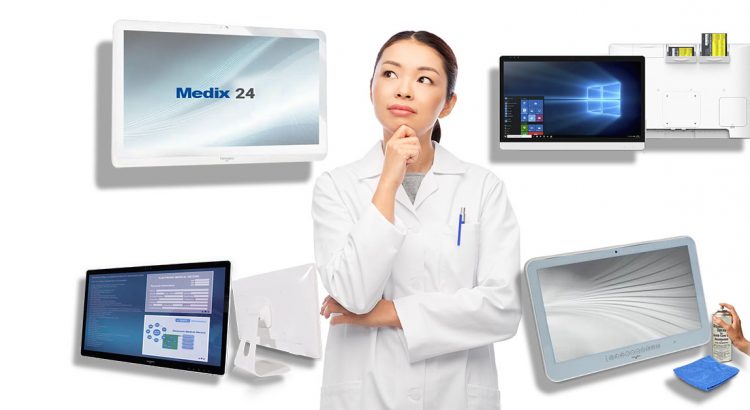In today’s rapidly evolving healthcare industry, technology plays an increasingly crucial role in patient care. Medical PCs are one such technological innovation that has transformed the healthcare industry by improving patient outcomes, increasing efficiency, and providing healthcare professionals with real-time patient information. Choosing the right medical PC for your healthcare facility is an essential decision that can have far-reaching consequences. In this blog post, we will discuss some key factors that healthcare providers should consider when selecting a medical PC.
Durability
The first factor to consider when choosing a medical PC is its durability. Medical PCs must be durable and reliable, as they will be subject to frequent use, high traffic, and harsh environmental conditions. They must also be able to withstand regular cleaning and disinfection without compromising their functionality. A medical PC that fails or malfunctions during a critical moment can put patients at risk and create additional workload for staff. Therefore, it’s important to select a medical PC that is specifically designed and built for the healthcare industry.
Infection Control
Infection control is a crucial consideration in the healthcare industry. Medical PCs must be designed to minimize the risk of cross-contamination and the spread of infections. This can be achieved by selecting medical PCs with antimicrobial coatings, which prevent the growth of bacteria, viruses, and fungi on surfaces. Additionally, medical PCs should be designed with smooth and flat surfaces that can be easily cleaned and disinfected without harboring bacteria or viruses.
Flexibility
Flexibility is another important factor to consider when selecting a medical PC. Medical PCs should be able to adapt to different healthcare environments and workflows. For example, medical PCs that are wall-mounted can save valuable space in a crowded hospital room, while mobile medical PCs can provide flexibility in a clinic or emergency room setting. Medical PCs with adjustable stands or mounts can also allow healthcare professionals to work comfortably in a variety of positions.
Connectivity
The ability to access and share patient data is critical in the healthcare industry. Medical PCs should be able to connect to a variety of healthcare networks and systems, including electronic health records (EHRs), picture archiving and communication systems (PACS), and other medical devices. This allows healthcare professionals to access patient information quickly and easily, making informed decisions about patient care. Medical PCs should also be equipped with reliable wireless connectivity, such as Wi-Fi or Bluetooth, to ensure seamless data transfer.
Ergonomics
Healthcare professionals spend long hours working with medical PCs. Therefore, it’s important to select medical PCs that are designed with ergonomics in mind. Medical PCs should have adjustable screens, keyboards, and mice to allow healthcare professionals to work comfortably and reduce the risk of musculoskeletal injuries. Additionally, medical PCs should be designed with anti-glare screens and adequate lighting to reduce eye strain and fatigue.
Performance
Medical PCs must be able to handle the demanding applications and software required in the healthcare industry. They should have powerful processors, ample memory, and high-quality graphics capabilities to provide healthcare professionals with fast and accurate data processing. Additionally, medical PCs should be able to run multiple applications simultaneously without compromising performance or speed.
Security
Patient privacy and data security are critical in the healthcare industry. Medical PCs should be equipped with advanced security features, such as password protection, biometric authentication, and encryption. Additionally, medical PCs should be designed to meet regulatory standards, such as the Health Insurance Portability and Accountability Act (HIPAA), to ensure the confidentiality and integrity of patient data.
Service and Support
Finally, it’s important to select medical PCs from a reputable vendor that offers comprehensive service and support. Medical PCs require ongoing maintenance, upgrades, and repairs to ensure their reliability and performance. A vendor that provides timely and responsive technical support.
Tangent offers medical PCs with cutting-edge technology and exceptional customer service. You can review our medical computers at Tangent.com.
